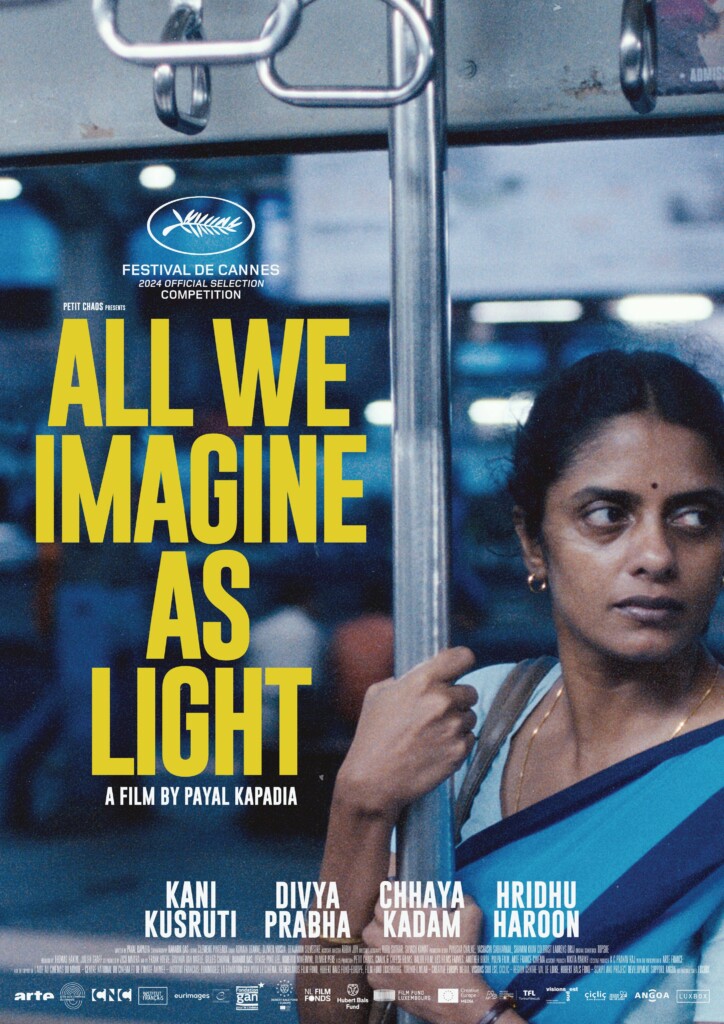Our rate: ****
All we Imagine As Light is generous – in the original sense, the pleasure of talking about others, of sharing a common feeling, not the satisfaction of trying to show off :-), particularly gentle, and embracing a feminine look at the women of Mumbai and its bay. This is virtually the only film in the competition (perhaps along with Bird, which we haven’t yet been able to see), so there’s clearly still room for improvement!
Poetically, directress Payal Kapadia, noted for her previous experimental documentary films, evokes the painful subjects so typical of the condition of women in India: the freedom denied them, their place in society, forced marriages, men’s behavior towards them, the impossibility of going against tradition or religion. Throughout, however, the film opts for chiaroscuro, both literally and figuratively. The ancestral nature of society is counterbalanced by scenes on the metro, women going to the movies together, texting in love, to show us that women in India today belong to a globalized world, are women first and foremost, and not objects of study to be looked at from a distance, and regarded as exceptions. No, what Kapadia is aiming for is much more universal, even if it means disturbing the viewer by not choosing a rebellious, electric form, but on the contrary, a gentleness in every shot, in every dialogue, which may seem like acceptance, or whose militant effectiveness we might legitimately doubt. There’s no rage here, just a state of mind, an inner beauty. Surprisingly, Kapadia‘s gesture for Mumbai, with its feminine side, is quite similar to Sorrentino‘s for Naples. A declaration of love-hate, attraction-repulsion.
The poetry of All we imagine as light reaches us so distinctly, once we’ve set it up – whereas that of Gomez‘s Grand Tour was less immediate, largely due to the very particular mode of narration, based on what is exchanged and said between the protagonists, the confidences they deliver to each other. This structure may remind us of gestures seen, for example, in films by Jarmush or Wayne Wang/Auster, and probably other films that don’t immediately spring to mind (help us :-)). It’s just as effective as a pamphlet that would have shocked us into questioning ourselves (we’re also short of those in the selection), in conveying how far we still have to go, what battles we still have to wage, and what we’re allowed to do while we wait for things to change, the few weapons victims have, what’s still possible in the face of the inexorable: benevolence, mutual aid, but also and above all, deluding ourselves, dreaming, to nourish an inner life that is more beautiful than reality.










Be First to Comment